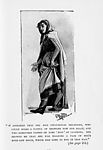 Harold Piffard Drawing
Harold Piffard Drawing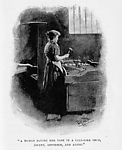 Harold Piffard Drawing
Harold Piffard Drawing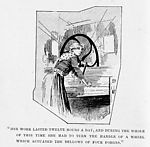 Harold Piffard Drawing
Harold Piffard Drawing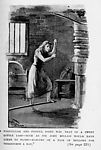 Harold Piffard Drawing
Harold Piffard Drawing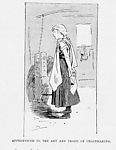 Harold Piffard Drawing
Harold Piffard Drawing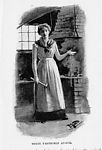 Harold Piffard Drawing
Harold Piffard Drawing

“A long cry of indignation is echoing today through Europe in consequence of the revelations made by Mr. Sherard.” (L’intransigeant, Paris)
Robert Harborough Sherard supported himself mostly from journalism, contributing articles to papers in France, England and America. He was also a prolific writer of novels, biographies and social commentaries, publishing 33 works in total. His social investigations, during which he lived with the poor and studied their conditions, resulted in works such as "The White Slaves of England" (l897).
Sherard’s investigations had taken him to the Alkali workers of Widnes and St. Helens, the Nail-makers of Bromsgrove, the Slipper-makers and Tailors of Leeds, the Wool-combers of Bradford, the White-lead workers of Newcastle and the Chain-makers of Cradley Heath. These were just some of the industries that had been placed under the cloud of being “sweated” industries.
Stimulated by the work of the Reverend Harold Rylett, who in 1889 had carried out an investigation of the nail and chain-making industries, and had found that nothing had changed since the visits by members of the Select Committee, Robert Sherard carried out his own investigations. Sherard was accompanied by Mr James Smith, Secretary of the Chain-makers' Union, and the renowned artist Harold Piffard.
His technique was not to knock at the front door of a workshop, but to climb over the back wall, as his motives would not have been welcomed by the masters. Once inside, he spent his time talking to the workers, asking about their conditions, gaining an intimate understanding of how they tried to make ends meet. He would also visit them in their homes, or in public houses, wherever they felt comfortable about revealing the day to day struggle for survival. Piffard, meanwhile, would sketch what he saw, producing a series of illustrations, that were guaranteed to pluck at the heart-strings of the middle-classes.
In his conclusion, Sherard referred back to the 1890 House of Lords report and wrote, “We are now in March 1898, and matters are today worse than they were eight years ago. Such, at least, is the opinion I have formed by my investigations. And eight years hence, matters will be still worse unless other remedies are found, than appeals to the stony heart of capital. It is a pity that this should be so”.
Rollover the captions in the box to see the available images in thumbnail format, click the caption to see the full-size image
| Reference: | 717 |
| Keywords: | |
| Archive Ref: | |
| Updated: | Mon 25 Jun 2007 - 1 |
| Interpretation written by | Louis Howe |
| Author's organisation | Curatorial |
| Organisation's website |